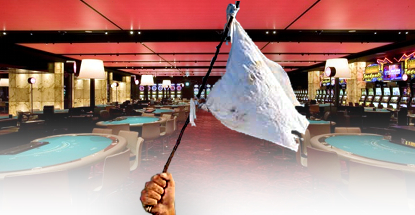 South Korea’s largest casino operator Paradise Co Ltd saw its profit fall by nearly half in Q2.
South Korea’s largest casino operator Paradise Co Ltd saw its profit fall by nearly half in Q2.
Paradise, which operates five of South Korea’s 16 foreigners-only casinos and is constructing the Paradise City integrated resort near Incheon, said profit fell 47.1% to KRW12.6b (US $10.9m) in the three months ending June 30. Total revenue was down 17% to KRW 143b ($123m), driven by a 17.6% decline in gaming revenue to KRW 122.7b ($105.5m).
Table drop was down at all five Paradise properties, with the flagship Walker-Hill property in Seoul – currently the country’s largest gaming venue – falling 27% to KRW 590b. Paradise’s two properties on Jeju island – Jeju Grand and Jejue Lotte – were down 19% and 30% respectively. Paradise Casino Busan took the hardest hit, falling nearly 36% while the existing Incheon property fared best, slipping a mere 2%.
Paradise’s woes stem from several factors, including an outbreak of Middle East Respiratory Syndrome (MERS) in Korea that has finally begun showing signs of containment. The Chinese government hasn’t helped matters, warning other Asia-Pacific countries to stop luring its citizens abroad for the purpose of gambling, going as far as to single out Jeju casinos as serial offenders and arresting Koreans acting as travel agents for Korean casinos.
Paradise says the number of VIP visiting days – defined as the number of high-rollers who played table games at a Paradise property – fell 14% in Q2. The number of Chinese VIP visiting days was down nearly 31%, while Japanese VIPs were down 18% and other nations’ VIPs rose 5.5%.
VIP ‘soft drop’ – defined as manually recorded drop at a table during a game – was down 24% to KRW 1,31t. The Chinese VIP soft drop was down 31%. Japan fell 19.5%, while other nations rose 3.5% and mass market soft drop fell 8%.
According to the South Korean Casino Association, Paradise’s share of the country’s overall foreigners-only casino market fell nearly 10 points in Q2 to 47.4%, while rival Grand Korea Leisure’s share rose 2.6 points to 37.2% and the country’s also-rans improved nearly five points to 15.6%.
